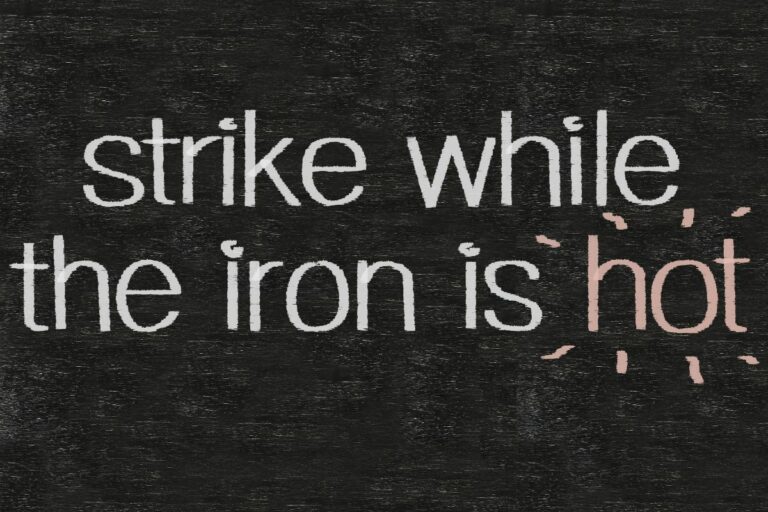What’s the Difference Between Talent and Skill?
From ensuring that you generate an income to giving you a more satisfactory life, you can hardly overlook the urgency of talents and skills. That many people are striving to identify not only their abilities but also develop them is no secret. The same can be said about skills. But have you ever taken a moment to establish the distinction between these two?
Talents are natural gifts that one can refine with time and continuous use. Concurrently, skills are nurtured gifts that you get through training, experience, or learning.
However, unless you understand the nitty-gritty of each of them, making logical decisions will be hard. For this reason, we take a look at what each option brings on the table. Here are a few invaluable insights.
Talents
What is a Talent
Various phrases go into defining what talent is. However, what comes out is that it is an innate ability to do or perform something.
That means that it is a God-given ability that could involve the potential for improvement and development. Well, you could also say that it is a reflection of how you are hard-wired.
It will suffice to mention that talents are not learned. However, one can develop and improve them with time. There is no denying that only a small group of persons is born with talents with this in mind. This innate gift can go through various improvements in life until it is at its best.
Most experts will often highlight the essence of this talent’s continuous use, as it could otherwise atrophy.
Categories of natural talents
Various studies classify talents in three distinct groups, including specialized abilities, driving abilities, and personal style.
While driving abilities tend to be the force behind everything you do, specialized abilities will significantly influence how you absorb and respond to information. On the other hand, personal style talents are those that predict behavior.
For instance, you could be a process person, high idea productivity, low idea productivity, or a decisive person based on personal style. Driving abilities will include things like spatial relations, concept organization, and classification.
People with specialized abilities will have better memory, visual accuracy, visual speed, and observation.
Examples of talents
There is no denying that we have a myriad of innate abilities that could transform our life and those around us.
Since they are not taught, you will need to take the time to establish what talent you have. Here are a few examples of the talents you might have.
Music
From tonal memory and pitch discrimination to rhythm memory, one can be talented in music differently. Whether you are good at remembering sounds and tonal sequences, the goal would be to keep improving on the ability. For instance, people that are gifted in music will be relatively uncomfortable when restricted to non-verbal activities.
Language
This talent could come in the form of multiple language mastery or unrivaled communication skills. You could also have verbal memory for books and tonal memory for conversations. In most cases, this talent will go together with organizational leadership.

Rhythm mastery and athletics
Undoubtedly, rhythm memory tends to influence kinesthetic learning. As long as you are gifted with it, movement-based work roles, including athletics and various sports, will hardly be a hassle for you.
Number memory
This ability allows you to memorize various number sequences related to specific areas of focus. Whether it is in statistical tasks or numerical information work, you are bound to thrive with this talent.
Art and design
The ability to recall or even come up with unique graphic patterns can never get overlooked. With such memory, visual learning and tasks will be your forte.
Why you should explore your talents
Various reasons go into why exploring your abilities is a wise move. Some of the benefits that come with this decision will often include the following.
Talents can benefit those around you
The coexistence and symbiotic relationship between humans can never go unnoticed. Talents are purposely designed not for the bearer only but also those around them. For instance, while you could be good at singing, someone will be better at drawing. All these talents will have an impact on those around them and in different ways.
Results in a more satisfying life
Did you know that exploring your talent could boost your energy and positive emotions? From improved health and wellness to unrivaled peace of mind, talents are a charm to behold. Since talents are your strengths, unmatched performance will be the day’s order, giving you the satisfaction you desire.
You can earn from them
Assuming you are a singer or athlete, there is no denying that you could tap your talent to earn you significant income. Whether you consider a part-time or full-time job based on your talent, you will be sure of getting an income at the end of the day.
Skills
What are skills?
A skill is the ability, knowledge, or competency you have in performing operational tasks. According to Wikipedia, it is the ability to perform specific actions within a set period and achieve particular results. Usually, you gain skill through learning and repetition, as this is the only way to refine it.
Types of skills
Mostly, skills come in three distinct categories, including functional, attitudes, and knowledge-based skills.
Knowledge-based skills are those skills that you gain through education, experience, and training. They highlight knowledge of specific procedures and subjects. For instance, training on accounting procedures will equip you with accounting skills.

Functional skills are also called transferable skills, and they are products of your aptitude. Most often, they involve transferable and operational activities. Some gifts under this category will include analysis, organization, and promotion.
On the other hand, attitudes are skills that you develop through life experience, especially during your childhood. These skills have a direct impact on how you perform different tasks. Some skills here will include being positive, patient, and result-oriented.
Examples of skills
You could readily put the measures of skills in four distinct categories, based on their impact on life. From job skills and leadership skills to organizational skills and life skills, you will be sure of many options.
Some top job skills that one can gain will include finance skills, mentoring, negotiation, and the ability to meet deadlines.
If you were to consider life skills, you would enjoy parenting, flexibility, adaptability, managing stress, and driving.
Leadership skills will encompass examples like conflict resolution, decision making, strategic planning, and business intelligence skills.
Organizational skills will often include the ability to set goals, logic, implementation skills, productivity, and office management.
Why you should develop skills
First, it would be best for you to understand which skills will have the most significant impact on your life. Once you settle on one, you will be free to start developing it. Here are a few reasons why you should have at least one skill.
Improve your wellness and health
No doubt, having skills will contribute to an active body and an engaged mind. That means that you will not only handle life challenges better but also gain new experiences. The result would be to have your neural pathways more active, promoting your health.
Personal and financial growth
With impressive skills at your disposal, you will be sure of having many doors open for you. For instance, having accounting skills could readily get you a job. Or you could otherwise become self-employed, thanks to the skills you have. With these, earning an income, in the long run, will be no hassle for you.
It enhances your relevance
Imagine a life where you can hardly do anything meaningful—devastating, right? Unless you have a skill with you, there will be no reason for people to acknowledge you or even give you a shot at employment. Further, unless you refine your skills, replacement at your workplace will be inevitable.
Differences between talent and skills
While both talents and skills can be a source of income, you cannot ignore the foundation of each of them. Indeed, they all highlight the ability to perform specific tasks. But that is not enough.
Talents are innate, and they can only be improved through experience, practice, and training. Unless you keep using them, losing them is inevitable. Briefly, talents are an act of nature that you will have to keep improving.
On the other hand, skills are acquired through training and experience. The more refined your skill is, the better and relevant an individual you become. That means that skills are those gifts that you nurture.
Conclusion
In conclusion, identifying your talent and topping it up with skill is one of the best decisions you could make. As you learn the difference between these two, it will be easier for you to understand how to grow yourself.






